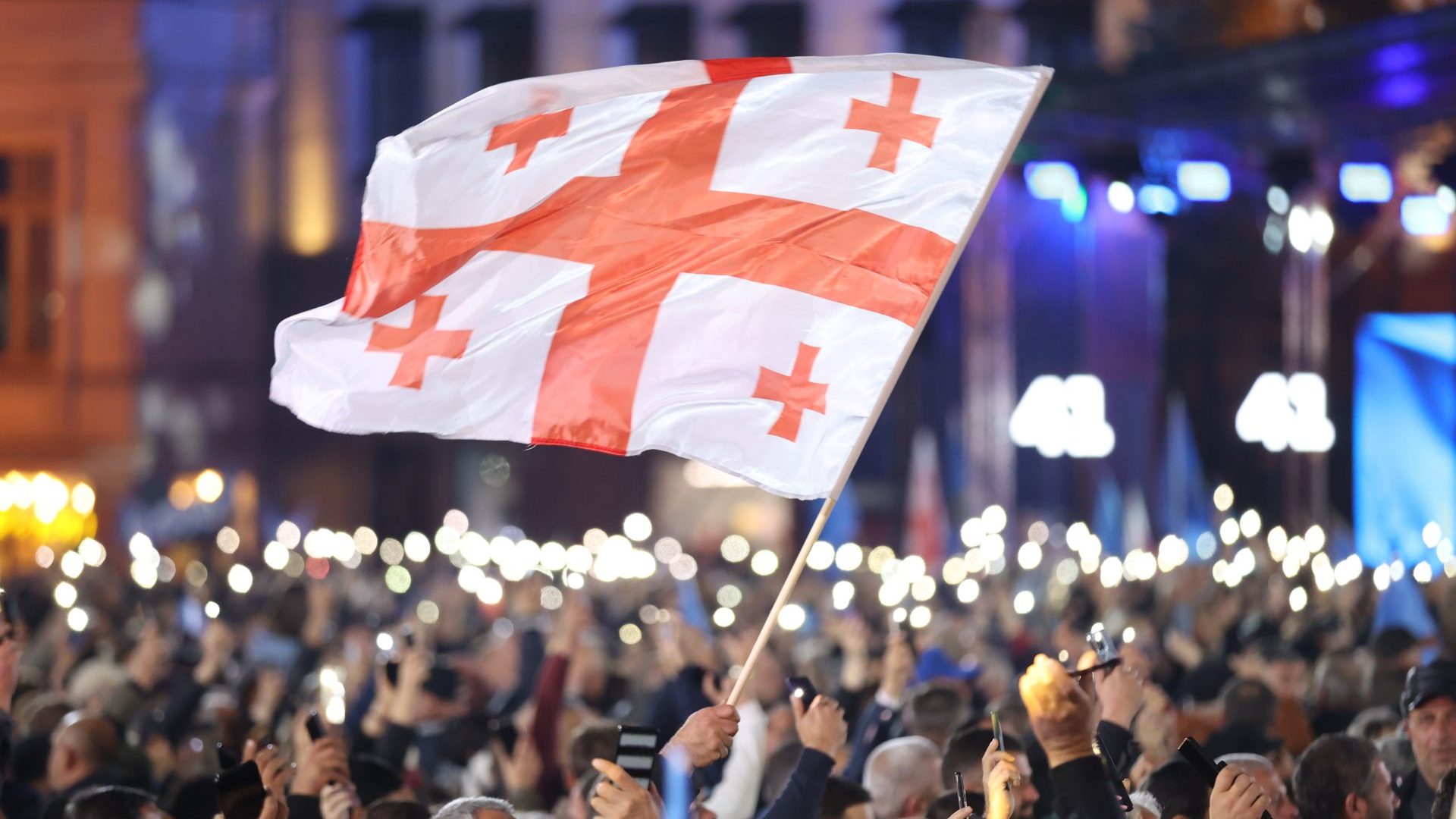It was an ordinary day in Stockholm, though not quite so ordinary for the Georgians living in Sweden. Members of the diaspora from all corners of what is Europe’s largest country by land area were gathering at the Georgian Embassy on Holländargatan to make a critical decision: would their country move toward European values, or become an authoritarian country in Russia’s backyard?
Morning, 6:00 a.m. I’m headed to the train station; my bus to Stockholm leaves at seven. It’ll be a six-hour journey, so I decide to walk to the station to stretch my legs a bit.
Outside, I’m greeted by a yellow-green autumn, fallen leaves scattered about, and a hare dashing somewhere on its morning business. Is he off to see his sweetheart—or maybe, just maybe, off to vote? I chuckle to myself; animals don’t vote. Or do they?
Voting, choices… my thoughts drift. A sound pulls me out of my reverie – like the toll of a bell. It’s the alert that a train is coming. The barrier drops, and that bell sound begins again. But who is the bell tolling for?
I settle into the Stockholm-bound bus. Six hours ahead. The scenery whizzes by: woods, woods, and more woods. Beautiful. Just like in Georgia, though half the forests there have been cut down.
But it’s not just trees – people have been cut down, too. Half the country lives outside its borders, all because people believed a man who promised them free money.
He is the oligarch Bidzina Ivanishvili, whose party came in power in 2012, and who runs the country – sometimes from the official positon of prime minister, sometimes without holding any official position. Right now, he likes to call himself an ordinary citizen – just one who is worth £5.8bn.
Imagine the power of Ivanishvili’s promise – getting money without having to give anything back. Fantastic! And so many believed. People still believe in fairytales: the elixir of life, magic tablecloths that lay out feasts, or the genie from a bottle granting wishes—naive ideas.
Only, things turned out the other way around: now people pay and receive nothing in return. No decent healthcare, no quality education, no proper food, no human rights. Human life holds little worth. That’s the paradox.
With these thoughts still swirling, I arrive in Stockholm. The Georgian civil sector has been lobbying the Central Election Commission for additional polling stations elsewhere in Sweden to make voting more accessible for Georgians. But their requests were denied, meaning that for many, including myself, just getting to Stockholm to vote was a costly endeavor, totaling at least 300 EUR for a round-trip ticket, a night’s stay, and lost workdays.
Many Georgians work weekend jobs and earn daily wages, so missing work isn’t something we take lightly. But I didn’t hesitate for a second. This was an opportunity to steer our country back on a European path. Yet, it felt like the system was intentionally making it harder for emigrants to exercise our right to vote.
However, society was so self-mobilised like never before. Georgian social media was filled with posts offering mutual help and support, with people volunteering accommodation in cities. Georgian communities across Europe had organized themselves, determined to ensure that everyone had the chance to cast their vote.
The same was also happening within Georgia. The “Daitove” Facebook group, which has over 200,000 members and is normally used to find temporary housing, was brimming with offers of free lodging to anyone who had to travel to vote.
On Holländargatan, the Georgian embassy had graffiti scrawled on the entrance walls equating the ruling Georgian Dream party with Russia. Alongside the message was one supporting the regime, claiming that defending one’s homeland is nothing to apologize for.
The memory of Bidzina Ivanishvili’s comment about Georgia apologising for its occupied regions flashed in my mind. Apologise to whom? Russia? My family’s home in Sokhumi has been on occupied territory for over 30 years. I am an internally displaced person—am I supposed to apologize for that? Someone had clearly decided to make their thoughts visible on the walls of the embassy.
Inside, I cast my vote against the Georgian Dream, a name that couldn’t feel more ironic. Watching Georgian people arriving from all over Sweden to vote felt energizing. Some had brought their children draped in Georgian flags; others wore scarves with our unique alphabet or bags bearing lines from Georgia’s treasured 13th-century poem Vepkhistkaosani. Some wore jewelry shaped like our country’s map.
Here, far from home, these people were Georgia. A nation isn’t just its territory but also its people, its values, and its integrity—and all of that was here in Stockholm.
In Sweden, 1,191 Georgians had registered to vote; of these, 558 showed up to cast their ballots. Here, the Georgian Dream lost decisively, winning only 71 of those votes. Georgian emigrants around the world echoed this sentiment, overwhelmingly supporting the opposition.
News came that back home in the capital, Tbilisi, Georgian Dream had faile to win half of the votes, though the picture in some regions was different. Viral footage surfaced showing clear election tampering in Marneuli. Other reports of violations began to emerge.
On the election website itself, Georgian emigrants’ rejection of Georgian Dream wasclear, with the party receiving only 13% of the overseas vote. Yet, overall, the website reprtird Georgian Dream took 54% of the vote. It was an unbelievable result, literally. Jubilant prime minister Irakli Kobakhidze claimed victory and attributed the party’s unpopularity abroad to an “information deficit” among emigrants.
The reality is, the election was stolen, people were deceived, once again. In Stockholm, with its vibrant atmosphere of freedom, I could feel a heavy suffocating scent of the authoritarianism, the deeper Russian influence, starting to flood the streets of my homeland.









